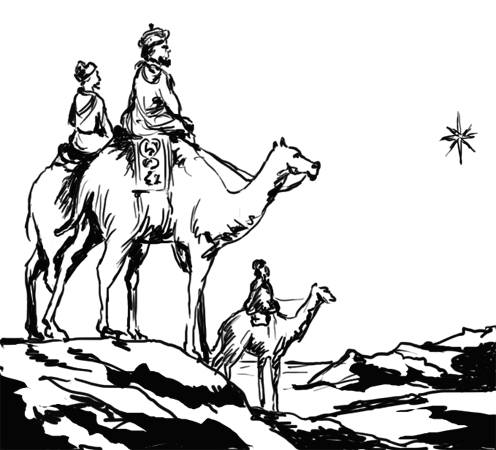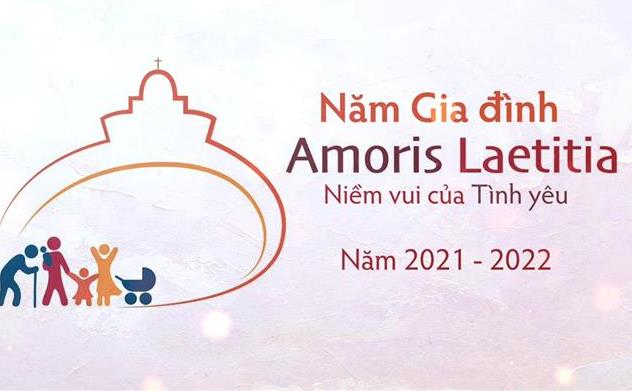 Epiphany of Year A
Epiphany of Year A
Is 60:1-6; Eph 3:2-3a, 5-6; Mt 2:1-12
Introduction: This is a homily/Scripture reflection in a book, titled: ‘Every Week God Speaks We Respond’, Cycle C, intended to be published in the future by Reverend John Tran Binh Trong.
It was published in Vietnamese in the US 2008 and republished in Viet Nam 2011. To keep the author’s writing style, this homily has not been edited and may not be by a hired hand. However, if readers would like to point out mistake(s) in spelling and grammar and/or to suggest English phrases and expressions, it would be greatly appreciated by the author, whose English is not his mother tongue and who did not live in the US until his adulthood. Passive sentences are used intentionally in this context as to avoid using the first personal pronoun ‘I’ when applicable. That might be associated with any idea of egotism, in accord with the French saying, known as: ‘Le moi est haissable’ (The ego is detestable).
To prepare for his Son to be born into the human history, God chose a nation to be his own in order to convey his saving grace to other nations. Throughout the history of the Old Testament, God commanded his prophets to speak to his people about his nature and his way, as well as to test them and purify their faith.
However, it was not that other nations had to stay outside waiting forever. That is why there was a story of the astrologers, used to be called magi or three kings, who came to worship the newborn king. In order to find out about the birth of the messiah, the magi had to come to a nation to whom scripture had revealed. First, they came to Jerusalem to visit the king's palace. However, they asked the wrong people like Herod. Herod was afraid of losing his throne, trying to deceive them. The attitude and purpose of the magi’s inquiry of the newborn king are to be taken into consideration.
They were sincere in their inquiry, not like Herod. They came to worship the newborn king according to their oriental custom. Homage and adoration were reserved for those who were considered majestic, great and powerful. Royal children were born in royal palaces. Here the messiah king chose to be born in the manger, dirty and smelly, not beautiful as we see in the manger we made and decorated in the church. So how did the magi prostrate themselves to worship the newborn king? What was the sign for them to recognize the newborn infant as the messiah and king? According to scripture, the sign was the wonder star.
The birth of the messiah at Bethlehem was predicted by Micah, the prophet, over seven hundred years before. So why did the chosen people not recognize him when he was born? Perhaps they expected the messiah to come in glory and power. Therefore, when he was born in the manger, they did not recognize him. Usually people use signs and symbols to express their frame of mind and position of soul. So let us try to find out what signs and symbols the astrologers used to express their frame of mind and position of soul towards the newborn king?
Today's gospel tells us: They prostrated themselves and did him homage and offered him gold, frankincense and myrrh (Mt 2:11). Why did they offer these gifts? In other words, what is the meaning of their gifts? Gold stands for kingship and power. In offering gold to the newborn King, they acknowledged his kingship and majesty. Frankincense was a gift offered to God. By offering frankincense, they acknowledged his divinity. Myrrh was used to embalm bodies for burial. In offering myrrh to the newborn king, they acknowledged his human nature, subject to death.
We also use postures and gestures in our worship. Our postures like standing, kneeling, sitting, bowing heads, folding hands, making the signs of the cross and so on are appropriate gestures to help us stir up appropriate feelings. Our mere postures are sufficient to express something without any word. So kneeling to pray is an act of prayer and worship. It signifies a spirit of penance and sorrow in need of God.
As Catholics, we need to answer for ourselves those questions: Why do we go to church to attend mass? Why do we pray, why kneel, why stand, why sit, why genuflect, why bow, why make the sign of the cross. We need to know why we do those things so that we may avoid doing them in a mechanical way and in a routine fashion. Each week we come together before the altar of the Lord for the Eucharistic celebration. We do not have gold, frankincense, and myrrh to offer to God. What we offer is the gift of love, adoration, joy and sorrow, the gift of ourselves.
Prayer for knowing how to worship the Almighty:
Oh Savior, the newborn among us.
As the three gentile astrologers
set out to seek out and worship you,
teach us how to worship you with our total being.
Forgive me for the times I worshiped you
with my lips, but my hearts were far away from you.
Worship, praise, glory and love
I offer to you with my sincere heart. Amen.
John Tran Binh Trong



 Every Week God Speaks – We Respond, Cycle A was published Online in the US. The introduction of the book is recorded at “Sách của Tác giả Chủ trương, Column 1.
Every Week God Speaks – We Respond, Cycle A was published Online in the US. The introduction of the book is recorded at “Sách của Tác giả Chủ trương, Column 1.

 Năm Mục Vụ Giới Trẻ 2021. HĐGM ấn định một chương trình Mục vụ Giới trẻ 3 năm với các chủ đề tương ứng: Năm 2020: Đồng hành với người trẻ hướng tới sự trưởng thành toàn diện.
Năm Mục Vụ Giới Trẻ 2021. HĐGM ấn định một chương trình Mục vụ Giới trẻ 3 năm với các chủ đề tương ứng: Năm 2020: Đồng hành với người trẻ hướng tới sự trưởng thành toàn diện. Năm Thánh Giu-se: Nhân kỷ niệm 150 năm Đức Giáo hoàng Pio IX chọn thánh Giuse làm Đấng Bảo Trợ Giáo Hội Công Giáo, Đức Phanxicô đã ban hành Tông thư “Patris corde” – Trái tim của người Cha – và công bố “Năm đặc biệt về thánh Giuse” từ
Năm Thánh Giu-se: Nhân kỷ niệm 150 năm Đức Giáo hoàng Pio IX chọn thánh Giuse làm Đấng Bảo Trợ Giáo Hội Công Giáo, Đức Phanxicô đã ban hành Tông thư “Patris corde” – Trái tim của người Cha – và công bố “Năm đặc biệt về thánh Giuse” từ  Năm “Gia đình Amoris Laetitia” 2021 về “Vẻ đẹp và niềm vui của tình yêu gia đình” do Bộ Giáo Dân, Gia Đình và Sự Sống tổ chức, được Đức Phanxicô khai mạc dịp Lễ Thánh Giuse
Năm “Gia đình Amoris Laetitia” 2021 về “Vẻ đẹp và niềm vui của tình yêu gia đình” do Bộ Giáo Dân, Gia Đình và Sự Sống tổ chức, được Đức Phanxicô khai mạc dịp Lễ Thánh Giuse 
